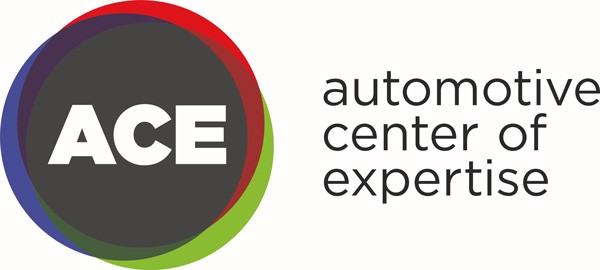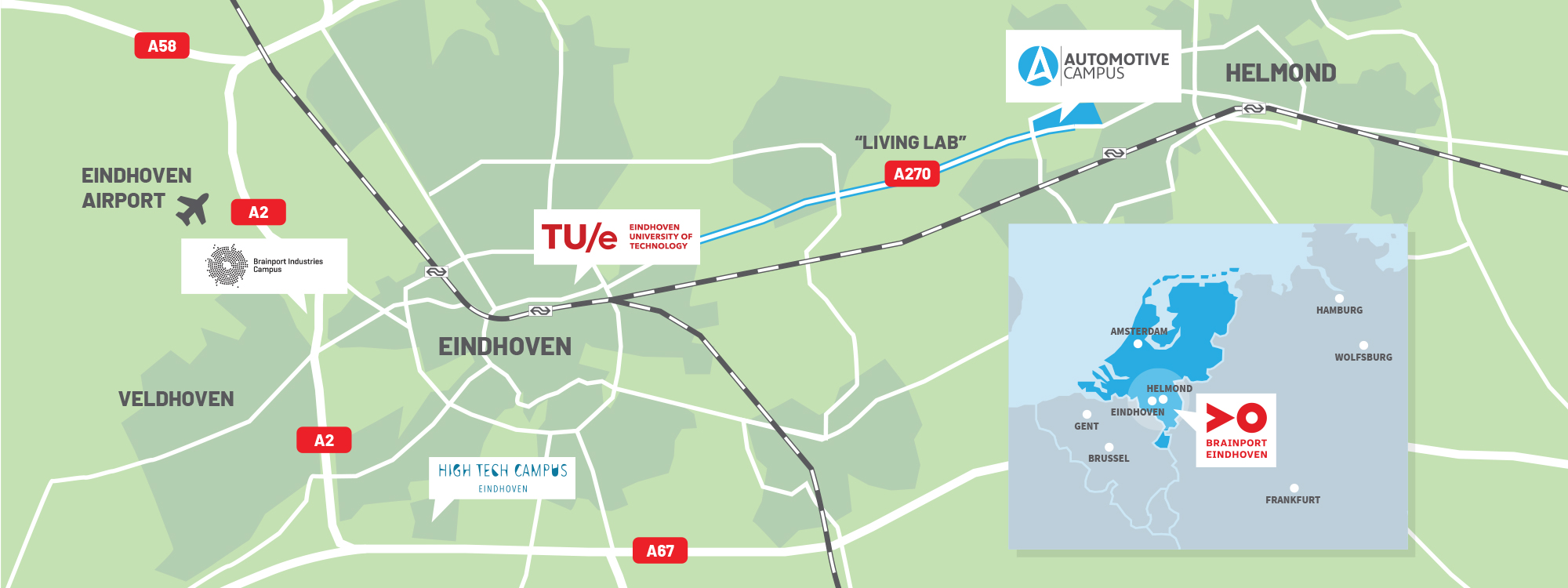Making the Netherlands leader in the implementation of Connected & Automated Transport (CAT) in road traffic, that is what IMIAT aims for. With 2030 as a dot on the horizon, the initiators of IMIAT will work towards this goal through various projects. IMIAT stands for Innovation Mobility Implementation Automated Transport. IMIAT focuses mainly on testing and implementing the technologies in test environments and in Living Labs. Initiator of the project is the Automotive Center of Expertise ACE Mobility, which is a linking pin between automotive education and the automotive industry, addresses innovations and developments, in which education and industry work together.
Why autonomous goods transport
The Netherlands has a lot of technological knowledge in the field of ICT, data and other technologies that the automotive industry also uses. In the field of Connected and Automated transport, these technologies have already been applied on a small scale in passenger transport, but in automated transport there are still big steps that need to be taken. IMIAT aims to enable self-driving freight transport with testing and implementation of the technologies. It is essential that companies, knowledge institutes and the government participate in this.
There is also an economic opportunity here: CAT will reduce transport costs (particularly by reducing labour costs and preventing time lost in traffic jams). This improves the competitive position and increases the market share of Dutch logistic service providers.
Autonomous freight transport also contributes to increasing the flow of road traffic. Because fully continuous (24/7) use of the infrastructure is possible (without restrictions on driving times and rest periods for drivers), it contributes to increasing the productivity and efficiency of the road network. The reduction in the number of accidents caused by human error and the resulting reduction in consequential damage also has a positive effect on traffic flow.
Ambition
By 2030, the Netherlands will be the leader in the implementation of Connected & Automated Transport for road freight transport in Europe. In figures, this means that in specific routes, so-called LivingLabs, 100% Connected & Automated transport is possible; that 20% of the freight transport between the IMIAT member transport companies, within the LivingLab, is carried out autonomously and that IMIAT is involved in the implementation of CAT on two international routes.
CAT is carried out with vehicles where the payload ranges from a single pallet to a full truck or container.
Experimentation and testing
It is unthinkable to introduce CAT untested into practice overnight. Professional phased experiments, simulations, tests and homologations of all innovations must precede this. Functional Safety Compliance (FSC ISO 26262) and Safety Integration Levels (SIL IEC 50128) must be paramount. The test phase will be conducted in a virtual environment ('Digital Twin') that sufficiently matches the real situation. In addition, testing and implementation will take place in a closed environment, semi-open environment and real-life in areas relevant to the use case. The Experimentation Act offers the possibility of professional testing on the road after thorough preparation.
Working group approach
Workgroups have been set up within IMIAT. In these working groups, companies, government agencies and knowledge institutions discussed the problem definition, solution directions and deliverables per working group topic. These working groups form the backbone of practice-oriented projects that the IMIAT partners will set up with transport companies and OEMs, among others. Thus, working groups and projects together form the outcome of the IMIAT program. The completion of each project marks a milestone of IMIAT's ambition. In each working group, companies, knowledge institutes and governments have participated with an interest in sharing, testing and applying knowledge. The working groups defined in IMIAT are: Closed Test Track, Living Lab, Virtual Test Track, National and International Infrastructure, Vehicle, Monitoring/Evaluation, Regulatory Affairs, Project Management and Organization and Processes. A detailed feedback of the working groups is available upon request.
Planning
Currently, the IMIAT proposal is being further developed so that it can be submitted to various regional, national and international funds. After the allocation of the necessary budget, IMIAT will have a total duration of ten years. At the beginning of the first year, the organization and capacity for the implementation of IMIAT will be built. The aforementioned project plan will also be delivered at that time.
Starting in the middle of 2021, the implementation of IMIAT will begin. First CAT will be implemented in the form of a small-scale test. Through a number of growth steps, CAT will be implemented in the LivingLab around 2028.
In the period 2028 to 2030, the implementation will be improved and the number of transport movements will be increased. In the last year of IMIAT's term, an evaluation will be conducted. Based on this evaluation, it will be decided how to exploit the added value best.
Consortium
Almost twenty organizations have already joined the IMIAT and will participate actively in the implementation of the program, as well as several organizations that are part of the advisory board. DB Schenker, KLG, Ewals Cargo Care and TRTA are affiliated from the transport sector.
Technology companies also play a major role. Data and data processing are indispensable in the automotive industry.
TBA, ICT Group, Technolution, V-tron, Siemens, Hyster, Terberg Benschop are also affiliated. The knowledge institutions involved are HAN, Fontys and Erasmus University.
ACE mobility asks companies, knowledge institutes and governments that are interested in IMIAT to contact us. They can join the consortium and think along and participate in the working groups that are important to them.
IMIAT is an initiative of ACE Mobility.
For more information about IMIAT, please visit Ace Mobility or contact Jeroen van der Werf at: j.v.d.werf@acemobility.nl.



